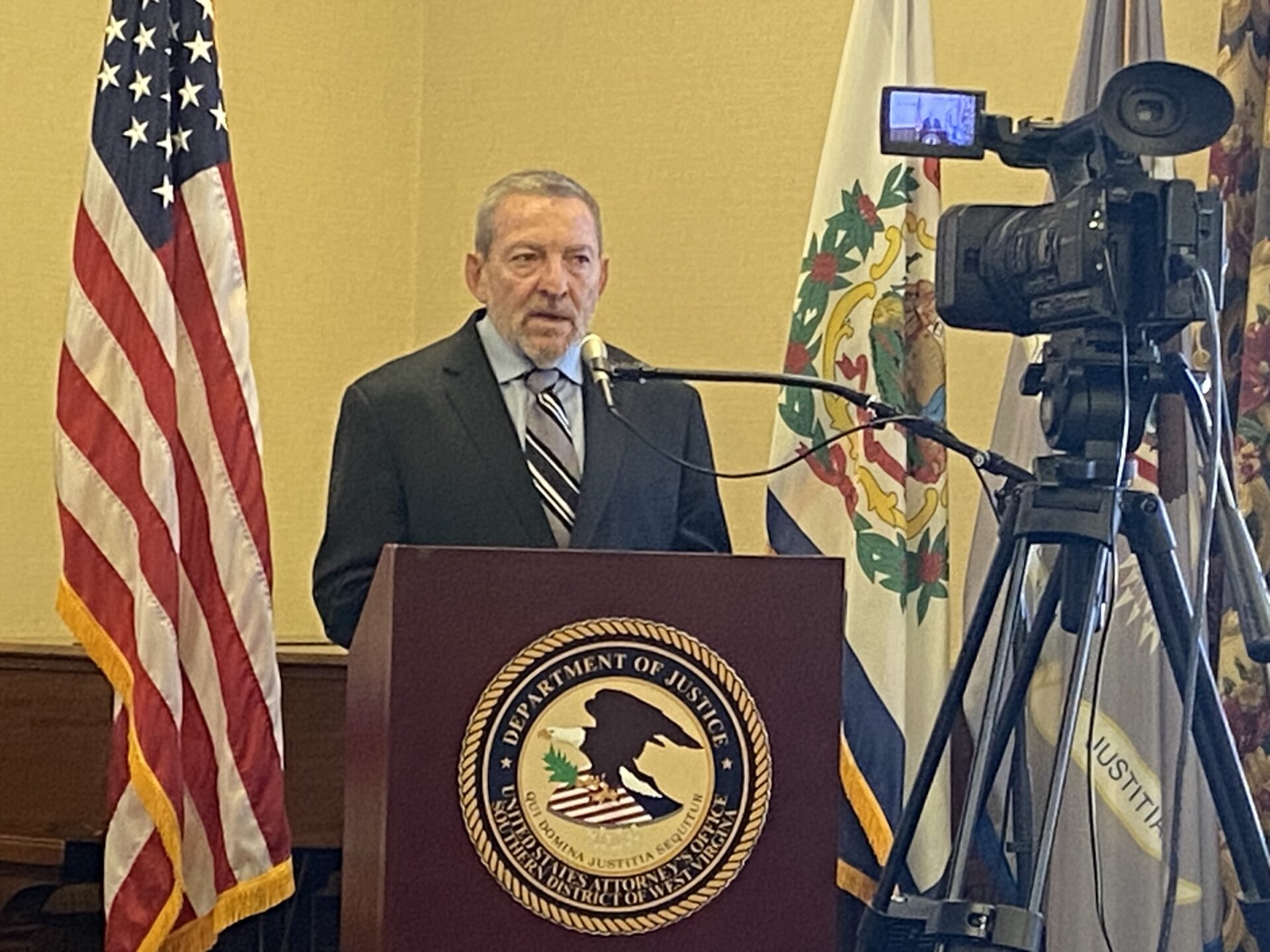Federal officials say antisemitism in America is up 400 percent since the Hamas-Israel War began a month ago, and West Virginia law enforcement is on high alert.
The U.S. attorneys for the northern and southern districts of West Virginia partnered Monday with the American Jewish Committee and the FBI to conduct antisemitism training for state law enforcement.
In his welcoming remarks, Rabbi Victor Urecki spoke with a voice of fear and a heart of hope. He told those gathered at his B’nai Jacob Temple in Charleston that his once open day and night temple doors, now stayed locked. He said his congregation has endured active shooter training, his temple has security alarms, and there’s now a police presence during the Jewish High Holy Days.
“That is not the way America is,” Urecki said. “I think if we can find the causes of this, find what we can do to tamp down that hate and let it go back down into the ground as opposed to being as violent as we’ve seen it today.”
West Virginia Southern District U.S. Attorney Will Thompson was the training host in Charleston. Northern District U.S. Attorney William Ihlenfeld joined in virtually from Wheeling. Thompson said this training was planned for months. He said before the war began on Oct. 7, hate crime preparedness was preventive, now it’s alarmingly vital.
“I regret that we still have Nazis as part of our news cycle,” Thompson said. “That’s really sad, but we are seeing it. We want them here to realize what antisemitism is and how to recognize signs of it. People might not realize it, when they first initially see it.”
The FBI is the lead agency for hate crime violations. FBI Agent Tony Rausa referred to a Charleston neighborhood. He said antisemetic red flags can be raised beyond hate inspired rallies.
“There were individuals disseminating some messages of hate along the west side,” Rausa said. “We saw someone dropping leaflets in plastic bags with some material indiscriminately throwing them out across people’s properties. We want to be able to look into that and figure out what’s going on behind the scenes to see if there is a greater message of hate that we’re not seeing on the surface.”
Credit: Randy Yohe/West Virginia Public Broadcasting
Kanawha County Sheriff’s Department Captain Eric Drennan said his team is ready in case any hate crime rally might get out of hand.
“People come out and do their protests and are usually well behaved,” Drennan said. “We do have contingency plans in place in case something out of the ordinary would happen.”
All involved in the training said the Jewish defense of Israel is a fight against Hamas terrorism. Thompson said he’s been reaching out to those of the Muslim faith as well, to make sure they are protected. He said West Virginia authorities will have no tolerance of any hate crimes, including Islamophobia.
“This is not a war against the babies of Palestine, the children and families of Palestine,” Thompson said. “This is a war against terrorists. We want to make sure people understand that. We want to make sure all parts of our community live together, work together, prosper together.”
Urecki said he hopes those attending the training here, and joining from around the state virtually, would leave this gathering with a sense of purpose – and hope.
“As members of the Jewish community right now, we’re scared,” Urecki said. “We’re scared from what we’re seeing from the far right and from the far left regarding a dramatic rise of hatred and antisemitism. What we are seeing here today is an outpouring of a sense of responsibility and a sense of urgency that we must try to see what we can do to help create peace among all peoples.”
Both Thompson and Urecki said they were sad that a law enforcement presence was required outside the temple, protecting those attending this training.
